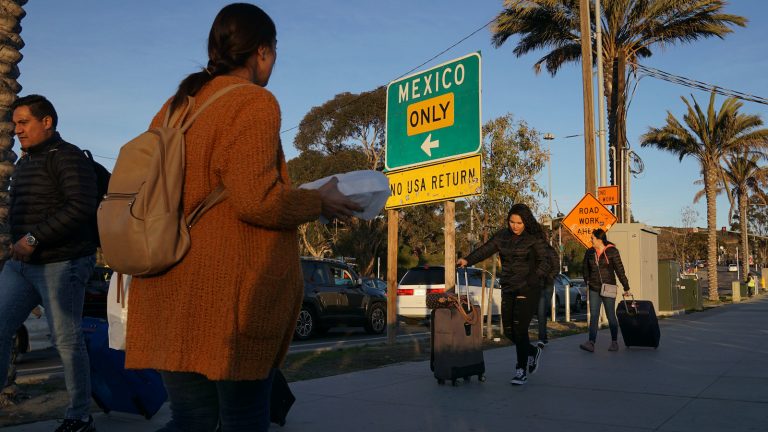The Trump Administration has nullified the impact of what should have been a major victory for Central American asylum seekers.
Last week, a federal judge declared that a Trump administration policy hampering asylum entry at the southern border was unlawful. On Monday, three judges on the 9th U.S. Circuit Court of Appeals upheld Judge Timothy Kelly’s decision, even calling Trump’s policy “arbitrary and capricious.” One could reasonably expect a significant increase in asylum seekers following such a ruling. But it doesn’t look like the US will be accepting a huge wave anytime soon—and the reason is bigger than just COVID-19.
Between massive labor shortages at the United States Citizenship and Immigration Services, political maneuvering from the White House and coronavirus as a lingering excuse, it may be months before this landmark ruling for asylum seekers has a significant impact.
The previous policy severely handicapped Central American asylum seekers by disqualifying their entrance at the southern border unless they’d already applied for, and failed to receive, asylum in every country which they passed through en route.
Now, that ban is obsolete—but it won’t help those seeking asylum today. A USCIS spokesperson announced in late June that the agency—which is responsible for processing and accepting asylum applications, among other things—would soon be furloughing nearly 70% of its employees, effectively bringing our asylum process to a standstill. It was a financial move—the spokesperson cited a “dramatic drop in revenue” as the leading factor—but its effects are in line with the Trump administration’s efforts to limit asylum entries.
USCIS is primarily funded by immigration application fees, and the asylum application is one of the few that can be filed for free. Halting the asylum process is one of the most cost-effective moves the administration could make, practically erasing pro-bono work from the system. The Trump administration seems well aware. After attempting, and failing, to add a filing fee to asylum applications, it hasn’t withheld any blows.
Under the guise of COVID-19 precautions, the asylum process—and, to an extent, the immigration system as a whole—has practically been shut down. Between March 21 and mid-May, only two people seeking humanitarian protection were permitted to enter at the southern border. During that span, USCIS’s 20,000 employees held only 59 screening interviews. The most recent data from the Department of Homeland Security shows that the United States accepted 13,248 asylum seekers in FY 2018. If the rate between March 21 and May 13 held true for an entire fiscal year, the United States would admit 14.
Expecting USCIS to be any more effective after cutting over two-thirds of its workforce is folly. And when one considers that the average asylum case takes over 700 days to process, it may be months—even years—before last week’s breakthrough court ruling will make any significant impact.
Judge Kelley, who made the ruling last week, accepted as much. In the opinion he wrote, “Indeed, that recent pandemic-related administrative action appears to have effectively closed the southern border indefinitely to aliens seeking asylum only underscores that vacatur of the Rule will not result in prohibitively disruptive consequences.” In simple terms: Trump has already closed the US-Mexico border, so my ruling won’t have any effect for some time.
He has a point. Thanks to him, asylum seekers got their biggest win in some time; but thanks to the administration, they might not see the fruits of it anytime soon.














Add comment